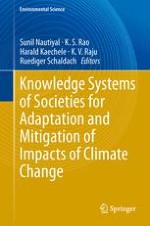2013 | OriginalPaper | Buchkapitel
Tourism, Environment and Economic Growth in Himalayan Kingdom of Bhutan
verfasst von : Komol Singha
Erschienen in: Knowledge Systems of Societies for Adaptation and Mitigation of Impacts of Climate Change
Verlag: Springer Berlin Heidelberg
Aktivieren Sie unsere intelligente Suche, um passende Fachinhalte oder Patente zu finden.
Wählen Sie Textabschnitte aus um mit Künstlicher Intelligenz passenden Patente zu finden. powered by
Markieren Sie Textabschnitte, um KI-gestützt weitere passende Inhalte zu finden. powered by
